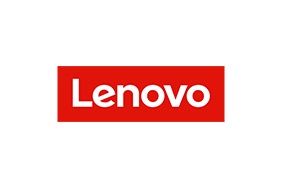Lenovo Champions Circular Economy With Robust Product End-of-Life Management and Recycling Initiatives
Published 03-06-25
Submitted by Lenovo
Originally published in Lenovo's 2023/24 ESG Report
Product end-of-life management (PELM)
Lenovo’s Product End-of-Life Management (PELM) program is an important part of its efforts to support a transition to a circular economy, as it supports extending the product lifecycle through reuse and recycling of products and parts. The PELM program also supports the elimination of end-of-life electronic products being disposed of in landfills and includes the practice of reuse, refurbishing, de-manufacturing, dismantling, reclamation, shredding, recycling, treatment, and disposal of products, parts, and peripherals when they are taken out of service, reach end-of-life, or are scrapped. This program covers Lenovo-branded and non-branded products owned by Lenovo or accepted from customers and others (including customer returns or take back). Lenovo has made available the Electronics End of Life Standard for suppliers with details about Lenovo’s PELM supplier requirements and the industry-standard certifications it promotes.
Product take-back programs
As a global business, Lenovo offers end-of-life recycling and management programs for both consumer and business customers in many major markets. These product take-back programs (PTB) are tailored to the specific location and business needs and include programs for recycling products as well as packaging and batteries in many geographies. Customers can obtain information about Lenovo’s recycling programs on its Recycling webpage.
For its business and enterprise customers, Lenovo offers Asset Recovery Services (ARS) globally to manage the disposition of IT assets and data center infrastructure. Customers can access information about Lenovo’s global ARS program at its Asset Recovery Services webpage.
Product and parts management
Lenovo, through these circular economy programs, strives to maximize the value and potential reuse of excess, returned, and obsolete products and parts across its business and manufacturing operations, repair network, and channel partners. Through reverse supply chains, these products and parts are kept in circulation as-is or after refurbishing and Lenovo can potentially avoid having to manufacture new products and parts.
Management of PELM suppliers
Lenovo maintains a program to help ensure that recycling, disposal, and disposition of end-of-life products owned by Lenovo or returned by customers is accomplished in an environmentally responsible and legally compliant manner. This program includes:
- Supplier completion of Lenovo’s initial supplier audit or evaluation form declaring their processing capabilities and controls, management systems for quality, environmental, health and safety, industry standards, legal compliance, downstream facilities disclosures, and evaluation criteria,
- Lenovo’s environmental audit or evaluation of supplier facilities and processes prior to engagement with documentation of audit findings and recommendations in a final report,
- Review of all audit or evaluation documentation and recommendations by its Geographic Environmental Focal Points and final approval by Global ESG management,
- Database of all Lenovo’s audited and approved PELM supplier facilities by geography with approved services for use by all Lenovo organizations, sites, and programs worldwide,
- Lenovo’s supplier contracts with specific environmental terms and conditions related to expected environmental performance and reporting,
- Suppliers in scope include ARS suppliers, legal and voluntary product take-back providers, dismantlers, recyclers, refurbishers, disposal, and other related vendors. Lenovo’s Electronics End of Life Standard for Suppliers sets guidelines that all recovered products and parts are to be data wiped, refurbished, tested for function, labeled as refurbished, and resold where they will be used as originally intended without further refurbishing before use. The standard also requires suppliers to use Lenovo-approved recyclers for the disposition of non-working products and parts and waste generated from their refurbishing processes and prohibits the shipment of hazardous waste to non-Organization for Economic Cooperation and Development (non-OECD) countries.
Recovery and recycling trends
As customers continue to have considerable interest in Lenovo’s recycling programs, its continual improvement activities include searching for opportunities to maximize reuse and recycling. Results of Lenovo’s progress against its PELM targets are available in Section 8.0. Lenovo’s ESG KPIs include recycling or reuse KPIs, for more information see Section 9.0.

Lenovo
Lenovo
Lenovo is a US$69 billion revenue global technology powerhouse, ranked #196 in the Fortune Global 500, and serving millions of customers every day in 180 markets. Focused on a bold vision to deliver Smarter Technology for All, Lenovo has built on its success as the world’s largest PC company with a full-stack portfolio of AI-enabled, AI-ready, and AI-optimized devices (PCs, workstations, smartphones, tablets), infrastructure (server, storage, edge, high performance computing and software defined infrastructure), software, solutions, and services. Lenovo’s continued investment in world-changing innovation is building a more equitable, trustworthy, and smarter future for everyone, everywhere. Lenovo is listed on the Hong Kong stock exchange under Lenovo Group Limited (HKSE: 992) (ADR: LNVGY). To find out more visit https://www.lenovo.com, and read about the latest news via our StoryHub.
More from Lenovo

